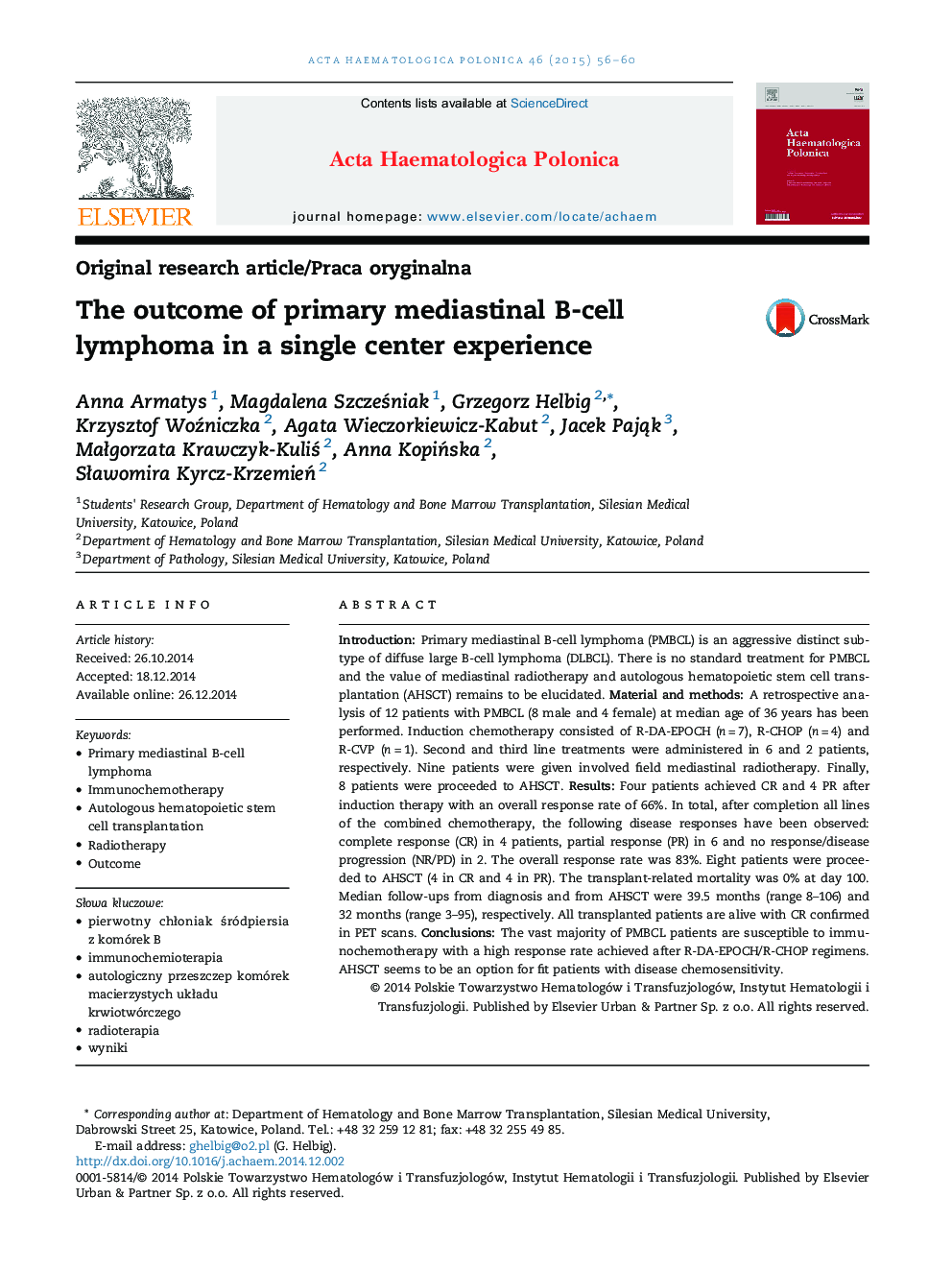| Article ID | Journal | Published Year | Pages | File Type |
|---|---|---|---|---|
| 3328129 | Acta Haematologica Polonica | 2015 | 5 Pages |
IntroductionPrimary mediastinal B-cell lymphoma (PMBCL) is an aggressive distinct subtype of diffuse large B-cell lymphoma (DLBCL). There is no standard treatment for PMBCL and the value of mediastinal radiotherapy and autologous hematopoietic stem cell transplantation (AHSCT) remains to be elucidated.Material and methodsA retrospective analysis of 12 patients with PMBCL (8 male and 4 female) at median age of 36 years has been performed. Induction chemotherapy consisted of R-DA-EPOCH (n = 7), R-CHOP (n = 4) and R-CVP (n = 1). Second and third line treatments were administered in 6 and 2 patients, respectively. Nine patients were given involved field mediastinal radiotherapy. Finally, 8 patients were proceeded to AHSCT.ResultsFour patients achieved CR and 4 PR after induction therapy with an overall response rate of 66%. In total, after completion all lines of the combined chemotherapy, the following disease responses have been observed: complete response (CR) in 4 patients, partial response (PR) in 6 and no response/disease progression (NR/PD) in 2. The overall response rate was 83%. Eight patients were proceeded to AHSCT (4 in CR and 4 in PR). The transplant-related mortality was 0% at day 100. Median follow-ups from diagnosis and from AHSCT were 39.5 months (range 8–106) and 32 months (range 3–95), respectively. All transplanted patients are alive with CR confirmed in PET scans.ConclusionsThe vast majority of PMBCL patients are susceptible to immunochemotherapy with a high response rate achieved after R-DA-EPOCH/R-CHOP regimens. AHSCT seems to be an option for fit patients with disease chemosensitivity.
